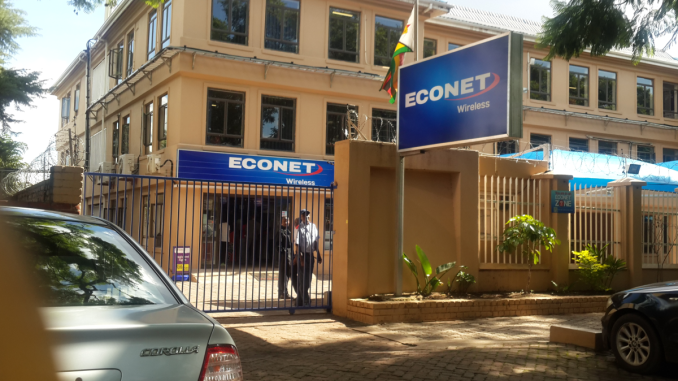The Postal and Telecommunications Regulatory Authority released the sector report for Q2 2022. No one living in Zimbabwe will be surprised that even the large companies in this sector are dealing with rising costs.
Zimbabwe is still dealing with high inflationary pressures, despite the ZWD firming against the USD a little in the last few months. Here is the trend when it comes to mobile operators’ operating costs.
You can see there was a 176% increase in operating costs from Q2 2021 to Q2 2022. Year-on-year inflation at the end of Q2 2022 was 191.6% and so the 176% increase in operating costs is not that bad.
Revenues have also been growing but not by much in absolute terms. We saw that Telecel has seen revenues fall in both ZWD and USD terms.
Here is the revenue trend:
Quarter Total revenues – ZW$ (Billions)
Q2 2021 16.9
Q3 2021 19.5
Q4 2021 26.2
Q1 2022 28.8
Q2 2022 38.9
There was a 130% growth in revenues as opposed to a 176% increase in operating costs from Q1 2021 to Q2 2022. This means profits have been falling in the sector.
Operating costs have outpaced revenues because there are restrictions on how frequently and by how much mobile operators can increase prices to respond to rising costs. For example, there was no tariff review in Q2 2022 at all despite inflationary pressures in the economy.
Potraz attributes the stable prices for the 32.6% increase in voice minutes used. We talked about the relatively low prices at the time and we were crucified for saying that.
Here is how that Q2 2022 revenue was shared:
Total revenues were ZW$38.9 billion (or around US$106.2 million using the official exchange rate at the end of the quarter).
Of which voice revenue, at 44.6% of total revenue was ZW$17.35 billion, shared thus:
Econet – ZW$13.01 billion (75%)
NetOne – ZW$9.41 billion (24.2%)
Telecel – ZW$0.14 billion (0.8%)
Data revenue at 38.9% of total revenues was ZW$15.13 billion, shared thus:
Econet – ZW$12.29 billion (81.2%)
NetOne – ZW$2.77 billion (18.3%)
Telecel – ZW$0.08 billion (0.5%)
SMS revenue at 6.6% of total revenues was ZW$2.57 billion, shared thus:
Econet – ZW$1.93 billion (75.1%)
NetOne – ZW$0.56 billion (21.6%)
Telecel – ZW$0.08 billion (3.3%)
Remember these are approximations calculated from market share. The MNOs price their bundles differently and those with cheaper bundles may command more market share but with a lower share of revenue than the market share would suggest.
Econet taking the lion’s share
Econet has 65.2% of total mobile subscribers. All things being equal you would expect to see them command around 65% in traffic and revenues.
In reality, they are pulling in over 75% in traffic and if we consider that NetOne and Telecel almost always have cheaper bundles, their share of revenues is likely higher than the traffic figures would suggest.
This means their share of data revenue could very well reach 90%. A data traffic share of 81.2% and less pocket friendly bundles means their revenue share is higher than that.
This spells out just how much of a hole Telecel is in. If Econet is pulling in more than 81% of data revenue, for example, it means Telecel is not even pulling in the 0.5% that their share of traffic would suggest.
Voice, data, and SMS revenue represent 90% of mobile operator revenues and so let’s extrapolate what 100% of revenues look like. Let’s average out the share of traffic on voice, data, and SMS and assume that translates to the other revenue channels. It won’t be precise bit it should give us an idea.
Econet – ZW$30.26 billion (US$82.7 million using official exchange rate at end of Q2)
NetOne – ZW$14.16 billion (US$38.7 million)
Telecel – ZW$0.3 billion (US$0.8 million)
That means we are looking at average revenue per user per month figures of:
Econet – US$9.10
NetOne – US$8.8
Telecel – US$0.64
To be honest with you, I don’t spend US$8.8 on airtime per month, let alone US$9.10. So, kudos to Econet and NetOne for extracting that much from ya’ll each and every month. Telecel is failing to get even a dollar from each subscriber.
Not much changing in this sector
Econet keeps inching forward, slowly cementing its already huge lead. NetOne remains a good option that is still miles behind the market leader. Then Telecel keeps doing Telecel things, trending in the wrong direction.
I don’t foresee any significant change to this status quo in the coming quarters. Years even. Barring a massive event like a new MNO getting a licence to operate or the Zim government deciding they have had enough of Econet like they did with EcoCash, we will be seeing more of the above for years.-techzim

